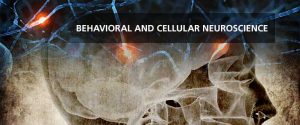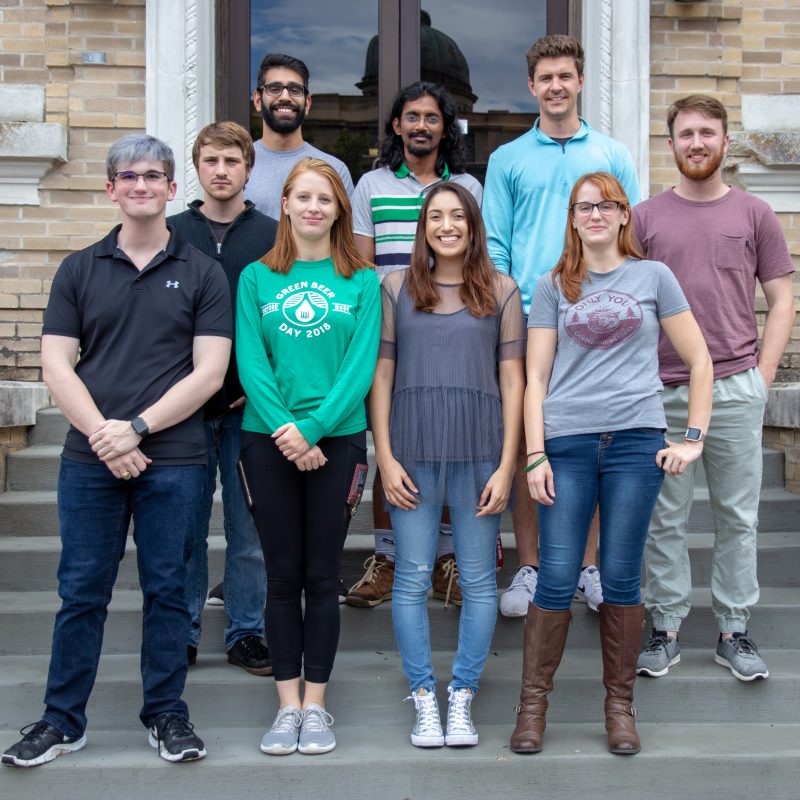Graduate training in BCN focuses on laboratory research using cutting-edge neuroscience methods including opto- and chemogenetics, behavioral electrophysiology, confocal microscopy, and molecular neurobiology. In the course of their training, students develop a close collaborative relationship with a primary advisor to develop a series of hypothesis-driven experiments that culminates in a dissertation. Throughout this process, BCN faculty members work closely with students to publish their work, and most students in the program publish several scientific papers in addition to their dissertation.
The BCN program prepares students for research and teaching positions in traditional academic settings, as well as positions in government and industry. For example, BCN graduates have obtained postdoctoral fellowships or faculty positions at other first-rate academic institutions (e.g., University of Arizona, University of Missouri, Yale, and UCLA). Moreover, BCN graduate students have also been successful in recruiting extramural grants and fellowships to support their work.
BCN Grad Program Coursework_2020.12
| Core Faculty | Research Interest | Accepting Students 2023-2024 |
|---|---|---|
| Bolanos-Guzman, Carlos | Establishing causal relationships between early-life experiences, brain, biochemistry, and behavior. Investigating how exposure to psychotropic drugs and stress alter the regulation of mood and motivated behaviors. | No |
| Eitan, Shoshana | Drug abuse during adolescence and adulthood, Social influences on drug abuse, Co-morbidity of drug abuse with mood and anxiety disorders | Yes |
| Grau, James | Neural plasticity and learning in a vertebrate model system. How pain input after neural injury affects recovery and chronic pain. | No |
| Maren, Steve | Brain circuits for emotional learning and memory. How stress and relapse undermine extinction of fear during treatments for anxiety disorders and PTSD. | |
| Moscarello, Justin | Neural pathways of learning and memory, Active avoidance behavior and aversively motivated action, Disorders of emotional memory (PTSD) | Yes |
| Nagaya, Naomi | Hormonal regulation of behavior. Understanding sex differences in the neural circuits underlying fear and anxiety | Yes |
| Packard, Mark | Neurobiological bases of memory, Identification of neural structures mediating different forms of memory. | Yes |
| Smith, Rachel | Behavioral neuroscience of addiction, habitual and compulsive cocaine seeking, neural mechanisms of motivated behavior. | Yes |
| Wellman, Paul | Determining the role of ghrelin on nicotine and cocaine reinforcement. Characterizing the impact of chronic nicotine on meal pattern and body weight in male and female rats as a function of maintenance diet. | No |

 The internationally recognized Behavioral and Cellular Neuroscience (BCN) faculty explores fundamental questions concerning the biological basis of behavior, including the neurobiology of learning and memory, drug addiction, psychopathology, and recovery of neural function after injury. BCN faculty affiliate with the interdisciplinary Texas A&M Institute for Neuroscience (TAMIN), which centers a variety of neuroscience activities, including courses, seminars, symposia, and research collaborations.
The internationally recognized Behavioral and Cellular Neuroscience (BCN) faculty explores fundamental questions concerning the biological basis of behavior, including the neurobiology of learning and memory, drug addiction, psychopathology, and recovery of neural function after injury. BCN faculty affiliate with the interdisciplinary Texas A&M Institute for Neuroscience (TAMIN), which centers a variety of neuroscience activities, including courses, seminars, symposia, and research collaborations.